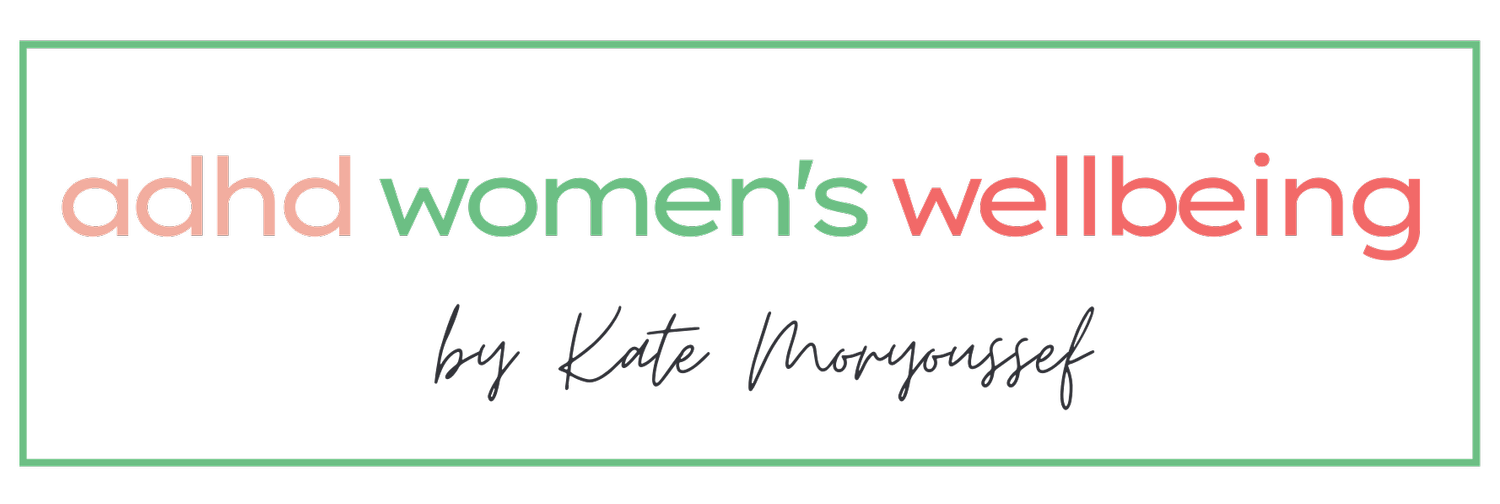Episode 174: Breaking down ADHD Neuroscience, Menstrual Cycles, Hormones and Anxiety
Neuroscience explains so much about our ADHD brain and the many traits, tendencies, and behaviours that come along for the ride. The more we understand our beautiful yet complex neurobiology, the more empowered we are to make sustainable and manageable changes to better enhance our lives.
So, I'm delighted to welcome this week's guest, Nicole Vignola, a neuroscientist, author, consultant, and brain performance coach, to the podcast.
Nicole's first book, Rewire: Your Neurotoolkit for Everyday Life is available now.
On today's episode of The ADHD Women's Wellbeing Podcast, Kate and Nicola speak about:
The science behind meditation
The brain's negativity bias
The function of the brain's 'DMN' AND 'TPN'
How self-interruptions affect our daily life
The power of meditation for emotional regulation
Nicole's tips for feeling more calm and positive
Feeling more self-aligned
The damaging effects of your phone and social media
Ways to be more mindful of your phone usage
Understanding dopamine better
The life-changing benefits of a healthier sleep routine
How hydrating first thing can be essential for the ADHD brain
How visualising works in the brain and how it can improve our habits
Aphantasia and learning how to visualise
You can find out more about Nicole via her website, www.nicolesneuroscience.com.
My other guest on today's ADHD Women's Wellbeing episode is Dr Lotta Borg Skoglund. We are at the cusp of new understandings about combining medical disciplines so we can understand ADHD in girls and women better through the lens of both menstrual cycles, hormones and psychiatry. This is for the lost generation of women who never got answers and for the future generations of girls who deserve better medical knowledge and research.
Lotta is an associate professor in psychiatry at the Department of Women and Children's Health at Uppsala University and an affiliated researcher at the Department of Clinical Neuroscience at Karolinska Institutet. She is the author of six popular science books on ADHD and addiction, and her book ADHD Girls to Women - Getting on the Radar has been translated into several European languages, English and Korean.
On this episode of the ADHD Women's Wellbeing Podcast, Dr Lotta Skoglund and Kate spoke about:
Feeling abandoned by healthcare professionals after an ADHD diagnosis
Why healthcare professionals should be working together to help patients
How an understanding of ADHD can change your health outcomes
Building autonomy to feel more empowered with our ADHD
Improving female-based medical research and ADHD
The importance of talking about your experiences with hormones to help others
Precision and patient-led medicine
Connecting Hormones and Psychiatry to help more ADHD women
Why fluctuating hormones and cycles need to be part of the bigger health picture
Getting to know your unique hormone cycle traits
How you can create a personalised health journal
You can learn more about Lotta's work via her website, www.borgskoglund.com and Letterlife.
Welcome to a recap episode of ADHD Women's Wellbeing Wisdom! Have a look at some of Kate's workshops and free resources here.
